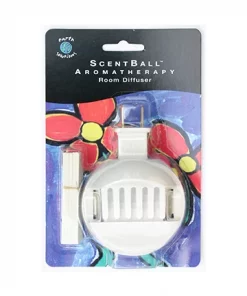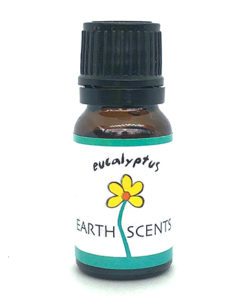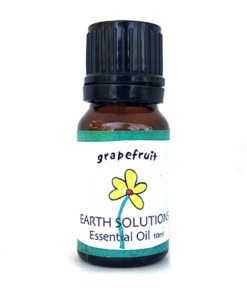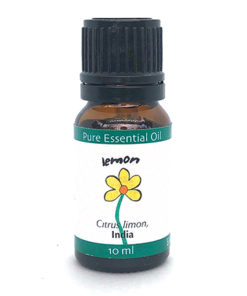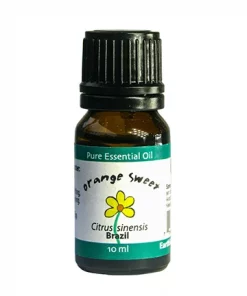Antioxidant Properties of Essential Oils; Eucalyptus Oil for Alzheimer's

Managing the day-to-day realities of neurodegenerative conditions like Alzheimer's and dementia can be an uphill task for patients and their loved ones. However, in the areas of nutrition and aromatherapy, credible research has proven effectiveness of alternative approaches.
This is a particularly relevant topic for the owner of Earth Solutions, physician David Epstein, D.O. who operates a telemedicine website testing and treating nutrient balances, inflammation toxic overload to reduce progression of this condition. Readers of this post may wish to learn more about his utilization of the Dale Bredesen, M.D. approach.
Aromatherapy and specific key essential oils also offer promise in treating neurodegenerative disorders such as Alzheimer's Disease. Recent research referenced below shows that various essential oil and their terpenes effect a very specific issue in persons with this disorder:
Eucalyptus Oil Alzheimer's and Dementia; Terpenes Antioxidant and Antiacetylcholinesterase Properties
In a popularly cited Moroccan research study, it was found that eucalyptus oil, notably from the species Eucalyptus globulus, was found to have significant anti-acetylcholinesterase (AChE) properties in research on commercial essential oils. Acetylcholinesterase is an enzyme that breaks down acetylcholine, a vital neurotransmitter involved in nerve signal transmission, particularly in the brain. In Alzheimer's disease, acetylcholine levels in the brain are significantly reduced, impairing cognitive functions. By inhibiting AChE, eucalyptus oil may help prevent the breakdown of acetylcholine, thereby potentially ameliorating some symptoms of Alzheimer's.
Interestingly, eucalyptus oil's AChE inhibition is not solely due to its major terpene components, 1,8-cineole and limonene, but to other compounds present as well, such as δ-3-carene. Despite its overall lower antioxidant activity compared to oils like Thymus vulgaris (thyme), eucalyptus was superior in terms of AChE inhibition.
Among the five oils tested in the study, Thymus vulgaris L. oil emerged as the top contender for antioxidant activity. The presence of key compounds, thymol and carvacrol, seems to underline its superior antioxidant activity.
The cited study used steam-distilled eucalyptus oil for in vitro tests, implying that the method of application in humans (inhalation or topical) was not directly addressed. However, the bioactive compounds in eucalyptus oil can potentially be absorbed through both methods.
This finding is part of a broader interest in harnessing natural antioxidants to mitigate oxidative stress, a key factor in neurodegenerative diseases. Antioxidants can "absorb" reactive oxygen species (ROS), preventing them from causing cellular damage. Essential oils like eucalyptus can serve as natural sources of such antioxidants, suggesting possible therapeutic potential in managing conditions like Alzheimer's.
Harnessing the Antioxidant Properties of Essential Oils
Neurodegenerative disorders, such as Alzheimer's disease and dementia, are associated with oxidative stress. Oxidative stress is a state of imbalance between the production of free radicals (highly reactive and unstable molecules that can cause damage to cells) and the body's ability to counteract or neutralize their harmful effects through neutralization by antioxidants.
Oxidative stress can lead to cellular damage, including damage to neurons, the primary cells of the brain and nervous system. Over time, this oxidative damage can contribute to the development and progression of neurodegenerative diseases.
Antioxidants are substances that help protect the body from oxidative stress by neutralizing free radicals, thus reducing their potential for cellular damage. Antioxidants include a range of substances, many of which are found in fruits, vegetables, and other plant-based foods. They can also be found in certain essential oils.
Research has suggested that antioxidants may play a protective role in neurodegenerative diseases. They may help to limit neuronal damage, reduce inflammation, and potentially slow the progression of these diseases.
For example, certain essential oils such as lemon balm (Melissa officinalis) and rosemary (Rosmarinus officinalis) have been found to possess antioxidant properties. These oils may contribute to reducing oxidative stress, potentially providing a supportive role in the context of neurodegenerative diseases.
This property is being explored in the context of neurodegenerative diseases to see how it might help in managing symptoms and supporting overall wellbeing [Perry & Perry, 2006; Mitchell, 1993].
Other Essential Oils with Properties that Improve Mood and Memory in Dementia
By virtue of their aromatic, stimulating, and soothing properties, essential oils have been utilized throughout history as potent therapeutic agents, and their relevance in the care of the elderly, particularly those suffering from dementia, extends far beyond their antioxidant qualities.
A key facet of essential oils' potential benefits to elderly dementia patients stems from their sensory stimulation effects. Oils like Melissa (Lemon Balm), Lavender, Rosemary, and Sweet Orange can permeate an environment with their aromas, activating the olfactory system. This sensory stimulation can induce a mental response that might assist in promoting cognitive function [Lin et al., 2007; Lee, 2005].
Moreover, essential oils are capable of generating a calming atmosphere. Lavender, for instance, is renowned for its ability to encourage tranquility, and studies have shown it can reduce anxiety and agitation, prevalent issues in dementia sufferers [Bowles, 2009]. By producing a serene environment, these oils may improve mood and enhance the quality of life.
Physiological stress reduction is another potential advantage of essential oils. As a part of aromatherapy, they can trigger physiological responses, like a decrease in heart rate or blood pressure. This calming effect can be instrumental in managing behavioral and psychological symptoms of dementia, which are often stressful for patients and caregivers alike [Grace, 2015].
Lastly, the stimulation these oils offer can be invigorating. Rosemary oil, for example, is often associated with memory enhancement, potentially stimulating neural activity and thereby benefitting those with cognitive impairment [Smallwood et al., 2001].
Essential Oil Recipes to Ease Dementia Symptoms
Creating your own blend of essential oils is a personal and rewarding endeavor. Not only can it be a cost-effective solution, but the process also allows for flexibility and customization to meet individual needs and preferences. By understanding the properties of each oil, you can craft a unique blend that targets specific health and wellness goals. Moreover, the creation process can be therapeutic and enjoyable, adding a sense of personal connection to the wellness routine. This hands-on approach truly puts the power of nature's gifts in your hands. Following are some thoughtfully crafted recipes to kickstart your aromatic journey. Let these serve as a guide as you embark on crafting your very own, uniquely tailored blends of essential oils.
Recipe 1: Morning Rise and Shine
| Common Name | Latin Name | Quantity (Drops) | Primary Benefit |
|---|---|---|---|
| Eucalyptus | Eucalyptus globulus | 60 | Promotes clear breathing & respiratory health |
| Rosemary | Rosmarinus officinalis | 35 | Enhances memory and concentration |
| Lavender | Lavandula angustifolia | 35 | Reduces anxiety and promotes sleep |
| Thyme | Thymus vulgaris | 15 | Boosts immunity |
| Orange | Citrus sinensis | 15 | Uplifts mood and reduces stress |
Recipe 2: Midday Calm Blend
| Common Name | Latin Name | Drops | Benefits Cited |
|---|---|---|---|
| Lavender | Lavandula angustifolia | 70ml | Reduces anxiety, improves sleep [Lee, 2005; Lin et al., 2007] |
| Lemon Balm | Melissa officinalis | 50ml | Reduces agitation, improves mood [Lee, 2005; Ballard et al., 2002] |
| Eucalyptus | Eucalyptus globulus | 40ml | Promotes relaxation and mental clarity [Schwan, 2017] |
Recipe 3: Evening Soothe Blend
| Common Name | Latin Name | Drops | Benefits Cited |
|---|---|---|---|
| Sweet Orange | Citrus sinensis | 70ml | Reduces anxiety, improves mood [Holmes et al., 2002] |
| Lavender | Lavandula angustifolia | 50ml | Reduces anxiety, improves sleep [Lee, 2005; Lin et al., 2007] |
| Eucalyptus | Eucalyptus globulus | 40ml | Promotes relaxation and mental clarity [Schwan, 2017] |
The total drops of 160, in each of these formulations, will provide a full 10ml bottle. This can be used directly by applying 5 or so drops to plug in diffuser, experienced by adding 2-3 drops to a scent releasing pendant or applied as a massage oil by adding 20 drops to one or two ounces of a carrier oil such as coconut or almond oil.

